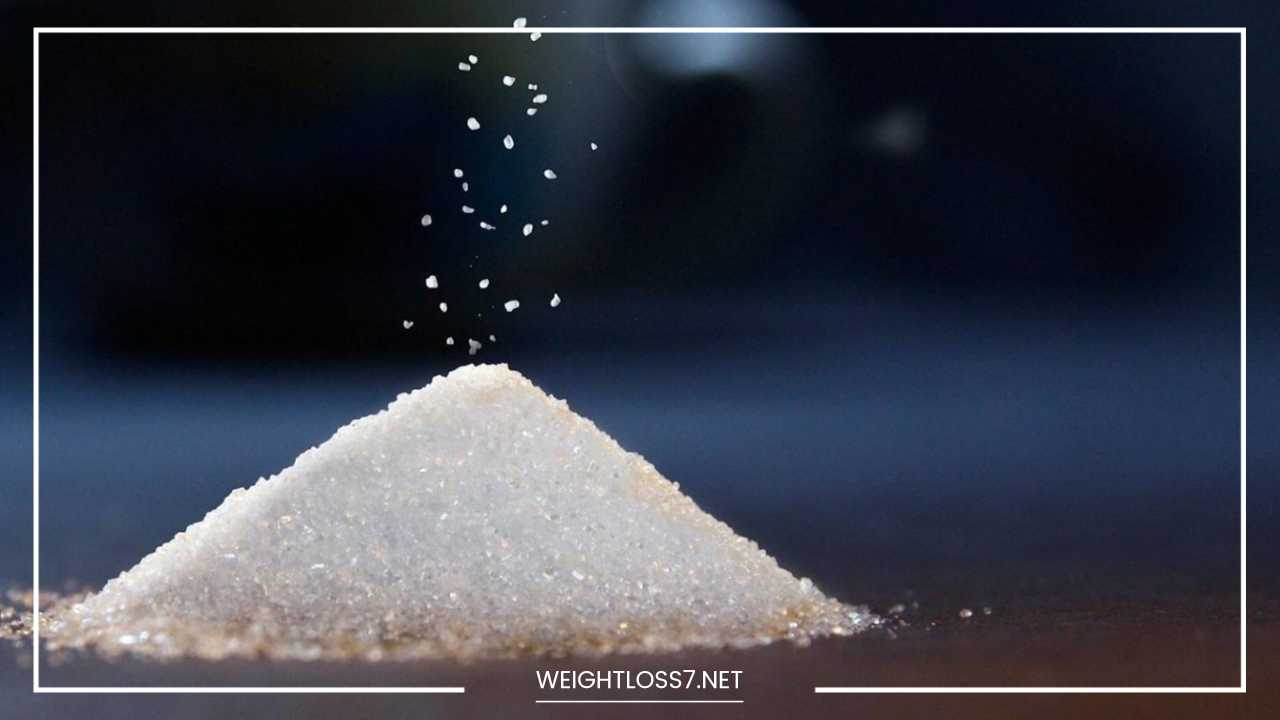Xylitol: Unlock Sweetness & Health Benefits

Xylitol
Xylitol: The Sweet Surprise That’s Good for You
For decades, sugar reigned supreme as the go-to sweetener. But with a growing focus on health and wellness, people are actively seeking alternatives.
Among these options, xylitol has risen in popularity, particularly for those seeking a natural and potentially beneficial way to satisfy their sweet tooth.
This comprehensive blog post delves deep into the world of xylitol, exploring its origins, unique properties, potential health benefits, and any considerations for its use.
We’ll also unpack how to incorporate xylitol into your diet safely and effectively, and answer some frequently asked questions.
A Dive into Xylitol’s Origins and Science
Xylitol belongs to a category known as sugar alcohols. These naturally occurring carbohydrates are found in various fruits and vegetables, including berries, plums, cauliflower, and even some hardwoods.
Additionally, xylitol is produced commercially through the hydrogenation process of xylose, a sugar derived from sustainable sources like corncobs or wood pulp.
Despite the name, xylitol isn’t technically an alcohol. It shares a similar molecular structure but lacks the intoxicating properties associated with alcohol.
Unveiling Xylitol’s Unique Properties
What makes xylitol stand out as a sugar substitute are its unique properties:
- Sweet Satisfaction: Xylitol boasts a sweetness level that falls between 70-100% of sugar, making it a suitable replacement in a wide variety of recipes. This allows you to maintain the sweetness you crave while exploring healthier options.
- Reduced Calorie Count: One of xylitol’s most attractive features is its lower calorie content compared to sugar. Xylitol contains about 40% fewer calories, making it a valuable tool for weight management or calorie-restricted diets.
- Blood Sugar Impact: Unlike sugar, xylitol has a minimal impact on blood sugar levels. This is because the body metabolizes xylitol differently, making it a potential sweetener choice for people with diabetes or prediabetes. However, it’s crucial to consult with a healthcare professional before making any significant dietary changes.
- Dental Health Champion: Extensive research suggests that xylitol may be a powerful ally in preventing tooth decay. Studies show it can inhibit the growth of cavity-causing bacteria in the mouth. This is in stark contrast to sugar, which feeds these bacteria and contributes to cavities.
Unveiling the Potential Benefits of Xylitol
Xylitol offers a range of potential benefits that extend beyond just sweetening your food:
- Blood Sugar Management: As previously mentioned, xylitol’s minimal impact on blood sugar makes it a potential sweetener choice for those with diabetes or prediabetes. Research suggests it can improve glycemic control, potentially reducing the need for medication in some cases. However, consulting with a doctor is essential before making any changes to your diabetes management plan.
- Enhanced Dental Health: Xylitol’s ability to fight cavity-causing bacteria makes it a champion for oral health. Studies have shown it can reduce plaque formation, increase saliva flow, and neutralize acids produced by bacteria in the mouth. This translates to a lower risk of cavities and better overall oral health.
- Weight Management Ally: Due to its lower calorie content, xylitol can be a helpful tool for weight management. It can help you satisfy cravings while consuming fewer calories. However, it’s important to remember that xylitol still contains calories, so moderation is key.
- Potential Ear Infection Reduction: Some studies suggest that xylitol may help reduce the risk of ear infections in children, particularly those prone to recurring infections. The exact mechanism is still under investigation, but it may be linked to xylitol’s ability to inhibit bacteria that contribute to ear infections.
- Intriguing Bone Health Connection: Early research suggests a possible link between xylitol consumption and increased bone mineral density. This could be particularly beneficial for individuals at risk of osteoporosis. However, more research is needed to solidify this connection.
Exploring Potential Drawbacks of Xylitol
While xylitol offers a range of potential benefits, it’s important to consider some potential drawbacks:
- Digestive Concerns: Since xylitol is poorly absorbed by the small intestine, excessive consumption can lead to bloating, gas, and diarrhea, especially in individuals with sensitive digestive systems. It’s best to introduce xylitol gradually into your diet and start with smaller amounts to allow your body to adjust.
- Limited Availability: Xylitol may not be as readily available as sugar in all grocery stores. You might need to visit specialty stores or order it online.
- Price Factor: Xylitol is often more expensive than sugar. While the health benefits may outweigh the cost for some, it’s an important consideration when making your decision.
Safe Use and Considerations:
- Individual Needs: It’s important to remember that everyone reacts differently to various foods. While xylitol is generally safe for most people in moderate amounts, it’s always best to introduce it gradually into your diet and monitor your body’s response.
- Pre-Existing Conditions: If you have any underlying health conditions, such as irritable bowel syndrome (IBS) or fructose intolerance, consult with your doctor before using xylitol. They can advise you on appropriate dosages and potential interactions with any medications you’re taking.
- Pet Safety: Xylitol is extremely toxic to dogs. Even small amounts can cause a sudden drop in blood sugar, leading to seizures, liver failure, or even death. If you have pets, be extremely cautious when using xylitol products and ensure they are stored out of reach.
Integrating Xylitol into Your Diet:
- Baking Delights: Xylitol can be a fantastic substitute for sugar in baking. Due to its similar sweetness level, you can often use a 1:1 ratio in most recipes. However, it’s important to note that xylitol browns differently than sugar. You might need to experiment slightly with baking times and temperatures or add moisture-enhancing ingredients like applesauce to achieve the desired results.
- Sweetening Beverages: Enjoy a guilt-free sweetness boost in your coffee, tea, or smoothies by adding xylitol. It dissolves easily and provides a delightful sweetness without the calorie overload of sugar.
- Tabletop Sweetener Option: Xylitol comes in granulated form, making it a convenient tabletop sweetener. This allows you to control the sweetness of your food and drinks at the table, just like you would with regular sugar.
- Sugar-Free Products: Many sugar-free chewing gums, candies, and desserts contain xylitol. However, it’s important to check the ingredients list to ensure xylitol is the primary sweetener and not combined with other sugar alcohols that might cause digestive discomfort.
Addressing Frequently Asked Questions:
- Is xylitol a natural sweetener?
Xylitol can be considered natural in two ways. It occurs naturally in small amounts in some fruits and vegetables. Additionally, the production process using xylose from plant sources can be considered natural.
However, commercially produced xylitol undergoes some processing, so depending on your definition, it might not be considered entirely “natural.”
- Does xylitol raise blood sugar?
No, xylitol has a minimal impact on blood sugar levels. Unlike sugar, which is readily broken down by the body into glucose (blood sugar), xylitol is absorbed slowly and doesn’t cause significant spikes in blood sugar.
This makes it a potential option for people with diabetes or prediabetes, but it’s always crucial to consult with a healthcare professional before making any dietary changes.
- Can xylitol cause cavities?
Quite the opposite! As mentioned earlier, xylitol is actually beneficial for dental health. Studies show it can inhibit the growth of cavity-causing bacteria and increase saliva flow, which helps neutralize acids produced by these bacteria.
- Is xylitol safe for children?
Xylitol can be safe for children in moderation. However, due to their smaller size and potentially higher sensitivity, it’s crucial to start with very small amounts and monitor their response.
Remember, xylitol is toxic to dogs, so be extra cautious if you have pets in the household.
- What are some alternative sugar substitutes?
Several other sugar substitutes are available, each with its own pros and cons. Some popular options include stevia, erythritol, monk fruit extract, and allulose.
Researching these alternatives and consulting with a healthcare professional can help you find the best option for your individual needs and preferences.
Delving Deeper: The Science Behind Xylitol’s Benefits
While the potential benefits of xylitol are promising, ongoing research continues to explore its effects in greater detail. Here’s a glimpse into some exciting areas of investigation:
- Gut Health: Early research suggests xylitol might influence gut microbiota, the community of microorganisms in our digestive system. Some studies indicate it could promote the growth of beneficial bacteria, potentially impacting overall gut health and digestion. More research is needed to solidify this connection.
- Ear Infection Prevention: The potential role of xylitol in reducing ear infections, particularly in children, is being actively explored. Studies suggest it might inhibit bacteria that contribute to ear infections. Further research could help determine the optimal dosage and long-term effects for this application.
- Bone Health Connection: As mentioned earlier, some studies suggest a link between xylitol consumption and increased bone mineral density. While the exact mechanisms are still under investigation, this finding could be particularly relevant for individuals at risk of osteoporosis. More research is needed to confirm this connection and explore its potential as a preventative or supportive measure for bone health.
Future Directions in Xylitol Research
The research landscape around xylitol is constantly evolving. Here are some potential future directions:
- Long-Term Studies: Most existing research on xylitol focuses on short-term effects. Long-term studies are crucial to understand the potential benefits and risks of xylitol consumption over extended periods.
- Dosage Optimization: Current research suggests moderate xylitol consumption is safe and beneficial. However, further studies are needed to determine the optimal dosage for maximizing potential health benefits while minimizing digestive discomfort.
- Combination Therapies: Investigating the potential synergistic effects of xylitol with other dietary components or natural health products could open doors to more comprehensive health-promoting strategies.
Finding the Right Balance: A Word on Moderation
While xylitol offers a range of potential benefits, it’s important to remember that moderation is key. Here are some tips for incorporating xylitol into your diet responsibly:
- Start Slow: As mentioned earlier, introduce xylitol gradually to allow your body to adjust and minimize the risk of digestive issues.
- Mind Your Portions: While xylitol is lower in calories than sugar, it still contains calories. Be mindful of portion sizes to avoid exceeding your daily calorie needs.
- Read Labels Carefully: Not all sugar-free products are created equal. Check the ingredients list to ensure xylitol is the primary sweetener and not combined with other sugar alcohols that might cause digestive discomfort.
- Variety is Key: Xylitol can be a valuable tool, but it shouldn’t replace whole fruits and vegetables as natural sources of sweetness and essential nutrients.
Final Word:
Xylitol presents a compelling option for those seeking a healthier approach to sweetness. With its potential benefits for dental health, blood sugar management, and potentially even gut health and bone health, xylitol offers a unique combination of taste and potential health advantages.
However, remember to prioritize moderation, introduce it gradually, and consult with a healthcare professional if you have any underlying health conditions.
By staying informed and using xylitol responsibly, you can explore its potential and make informed choices for a balanced and healthy lifestyle.

















